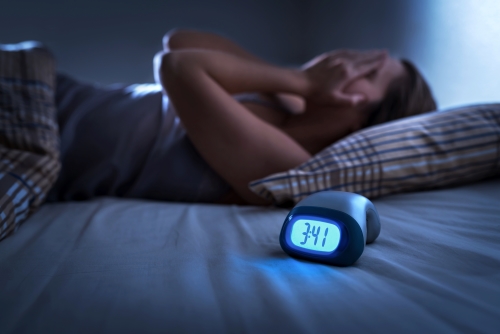
Deep sleep can rewire the anxious brain
New research from the University of California, Berkeley has revealed that a sleepless night can trigger up to a 30% rise in anxiety levels.
UC Berkeley researchers discovered that deep sleep, also known as non-rapid eye movement (NREM) slow-wave sleep, is the most suitable type of sleep to calm and rest anxious brains. This type of sleep causes heart rate and blood pressure to drop, and neural oscillations become highly synchronised.
“We have identified a new function of deep sleep, one that decreases anxiety overnight by reorganizing connections in the brain,” said study senior author Matthew Walker, a UC Berkeley professor of neuroscience and psychology. “Deep sleep seems to be a natural anxiolytic (anxiety inhibitor), so long as we get it each and every night.”
The findings provide one of the strongest neural links between sleep and anxiety to date. The findings also demonstrate that sleep may be able to be used as a natural, non-pharmaceutical remedy for anxiety disorders.
“Our study strongly suggests that insufficient sleep amplifies levels of anxiety and, conversely, that deep sleep helps reduce such stress,” said study lead author Eti Ben Simon, a postdoctoral fellow in the Center for Human Sleep Science at UC Berkeley.
Simon and his team used functional MRI and polysomnography, among other measures, to scan the brains of 18 young adults. The participants were shown emotionally stirring video clips initially after a full night of sleep, and then again after a sleepless night. The anxiety levels were measured after each session by using a questionnaire that is known as the state-trait anxiety inventory.
The data collected showed that after a sleepless night, the brain scans detected a shutdown of the medial prefrontal cortex – this area of the brain helps to keep anxiety in check. Despite this, the brain’s deeper emotional centres were overactive.
“Without sleep, it’s almost as if the brain is too heavy on the emotional accelerator pedal, without enough brake,” Walker said.
Alternatively, after a restful night of sleep, the results showed significantly decreased anxiety levels. This was particularly prevalent in participants who experienced more slow-wave NREM sleep.
“Deep sleep had restored the brain’s prefrontal mechanism that regulates our emotions, lowering emotional and physiological reactivity and preventing the escalation of anxiety,” Simon said.
After the study with the 18 original participants, the researchers repeated the study with another 30 participants. The results were the same, with all participants who got more deep sleep experienced the lowest levels of anxiety the following day.
In addition to these experiments, an online study was also conducted. 280 people of all ages were tracked, and data was gathered about how both their sleep and anxiety levels changed over four consecutive days.
Results showed that anxiety levels could be predicted by how much sleep the participant got the night before. Even subtle changes in sleep patterns had an impact on anxiety levels.
“People with anxiety disorders routinely report having disturbed sleep, but rarely is sleep improvement considered as a clinical recommendation for lowering anxiety,” Simon said. “Our study not only establishes a causal connection between sleep and anxiety, but it identifies the kind of deep NREM sleep we need to calm the overanxious brain.”
On a societal level, “the findings suggest that the decimation of sleep throughout most industrialized nations and the marked escalation in anxiety disorders in these same countries is perhaps not coincidental, but causally related,” Walker said. “The best bridge between despair and hope is a good night of sleep.”
Co-authors of the study are Aubrey Rossi and Allison Harvey, both at UC Berkeley.
Eti Ben Simon, Aubrey Rossi, Allison G. Harvey, Matthew P. Walker. Overanxious and underslept. Nature Human Behaviour, 2019; DOI: 10.1038/s41562-019-0754-8
https://www.sciencedaily.com/releases/2019/11/191104124140.htm
Tags: anxiety, anxiety relief, deep sleep, sleep


